Masturbation in Pop Culture
Masturbation in Pop Culture
Screen, Society, Self
Lauren Rosewarne
LEXINGTON BOOKS
Lanham Boulder New York London
Published by Lexington Books
An imprint of The Rowman & Littlefield Publishing Group, Inc.
4501 Forbes Boulevard, Suite 200, Lanham, Maryland 20706
www.rowman.com
16 Carlisle Street, London W1D 3BT, United Kingdom
Copyright 2014 by Lexington Books
All rights reserved. No part of this book may be reproduced in any form or by any electronic or mechanical means, including information storage and retrieval systems, without written permission from the publisher, except by a reviewer who may quote passages in a review.
British Library Cataloguing in Publication Information Available
Library of Congress Cataloging-in-Publication Data
Rosewarne, Lauren.
Masturbation in pop culture : screen, society, self / Lauren Rosewarne.
pages cm
Includes bibliographical references and index.
ISBN 978-0-7391-8367-0 (cloth : alk. paper) -- ISBN 978-0-7391-8368-7 (electronic)
1. Masturbation in motion pictures. 2. Masturbation on television. I. Title.
PN1995.9.M393R67 2014
791.43'6538--dc23
2014030911
 TM The paper used in this publication meets the minimum requirements of American National Standard for Information Sciences Permanence of Paper for Printed Library Materials, ANSI/NISO Z39.48-1992.
TM The paper used in this publication meets the minimum requirements of American National Standard for Information Sciences Permanence of Paper for Printed Library Materials, ANSI/NISO Z39.48-1992.
Printed in the United States of America
For Chris. In celebration of sexual dodginess.
Acknowledgments
With thanks to Linsdey Porambo and Elizabeth DeBusk at Rowman and Littlefield and the anonymous referees for their feedback and advice. Love and gratitude to friends who have had endured many an awkward conversation, notably Bec, Melissa, Allan, and Gavin.
Introduction
Its Okay, Everybody Does It, But Nobody Ever,
Ever Talks About It
I was nearing completion of the first draft of this book when a scandal broke in Australia. A major supermarket chainafter becoming the first in the country to stock vibratorswas threatened with boycotts by religious and family groups. The sex toy was in stores for less than two weeks before the shelves were cleared. The scandal was near identical to one in the UK in 2007 when another retailer withdrew a range of sex toys after their own sales experiment led to criticism. While both stories spark worthwhile discussions about the power of Christian lobby groups and kneejerk reactions of retailers, most relevant for this book, they spotlight popular discomfort with masturbation. News reports in both countries consistently eschewed any reference to how the toys would be used: masturbation as a word, as a subject, remains taboo.
In a scene from the sitcom Roseanne (19881997), family patriarch Dan (John Goodman) sat his new-to-masturbation son DJ (Michael Fishman) down for a heart to heart. The funny thing about this, said Dan, is that even though its okay and everybody does it, theres nothing wrong with it, nobody ever ever talks about it. He then put his finger to his lips. In just one sentence Dan encapsulated the contemporary attitude to masturbation. The Australian and UK vibrator scandals dont presume that people dont masturbate, nor do they imply that we still connect the practice to disease or demonic possession, rather they simply showcase a reality that we just dont want to talk about it. That doing so is considered crass at best, if not salacious and offensive at worst.
While we may have moved on from our Victorian past where autoeroticism was linked to every possible physical and psychological malady and treated with bizarre methods from brisk mountain walks through to electroshock therapy, nowadays the standard attitude is that it is perfectly fine: as Dan said, its okay and everybody does it and theres nothing wrong with it. There is, however, a but. The but is that a cultural imperative exists that we keep quiet about it. That we practice it in private and that we refrain from admitting to our own participation. Today we commonly accept that self-stimulation wont make us blind, wont grow hair on our palms or straighten our pubic hair or lead to menstrual disruption. In fact, its even quite common to hear it described as normal, natural and even healthy. But admitting to our own masturbationor walking into a supermarket and picking up a toy to aid the taskis considered a step too far. In an increasingly sexualized culture, masturbation remains the secret relegated to the bathroom or deep under the bedclothes.
After completing a book in 2012 which included a chapter about vibrators in film and television, I realised that there was much more to say about masturbation in popular culture; a topic that hadnt previously been treated to a volume of its own. Masturbation in Pop Culture fills this gap. This book is an examination of the how of popular cultures depiction of genital self-stimulation, as well as extensive speculation about the cultural and political whys.
Through the exploration of over 600 scenes from film and television, I present the case that masturbation has a very strong presence on screen. From sitcoms to horror movies, teen comedies to erotic thrillers, autoeroticism is easily detected.
The portrayal, however, is not simple.
Just as in real life a paradox exists where most of us masturbate and accept it as normal and natural, there simultaneously exists a silence about it; that we do it, but we dont talk about it; that we enjoy it but we laugh about it. The screen reflects this conflicted relationship. It is therehundreds and hundreds of timesbut it is routinely whispered about, mocked, presented as a punchline, and is inevitably portrayed as controversial at the very least.
Despite off-screen liberalizing of attitudes towards masturbation, there continues to be many screen examples where the practice is demonized, associated with death, insanity and criminality. Horror films like The Exorcist (1973), Cruel Passion (1977) or The Ferryman (2007) for example, illustrate devil possession via vivid and frightening displays of self-stimulation. Equally, the madness and badness of societys fringe dwellersthe incarcerated, mentally ill, homeless and even homosexualis frequently proven through autoeroticism.
At the opposite other end of the spectrum we are reminded that masturbation is primarily an act centered on pleasure. That it is done to feel good, to feel sexy. This pleasure can help substitute for an absent partner, assuage loneliness and distract from depression. Not only is the act itself pleasure-centered, but sometimesand very frequently in the case of female masturbatorsits display is a titillating, if not at times pornographic, presentation for an audience aroused by a sneaky peek at a usually private sex act.
Whereas female masturbation tends to be sensuous and included to arouse the audience, the self-stimulation of men is generally treated vastly differently. It is commonly situated in sophomoric comedies for example, where the act is hurried and inevitably gets sprung leading to embarrassment, if not also grotesque displays of semen splatter as in Love, Sex and Eating the Bones (2003), Grandmas Boy (2006) and American Pie Presents: The NakedMile (2006). Exceptions to all tropes exist though, and just as a small number of unsexy displays of female masturbation are detected (Margot (Nicole Kidman) for example, in the comedy-drama Margot at the Wedding (2007)), rare and erotic depictions also exist of attractive, buff naked men masturbating: the self-stimulation of Ben (Dylan McDermott) in
Next page
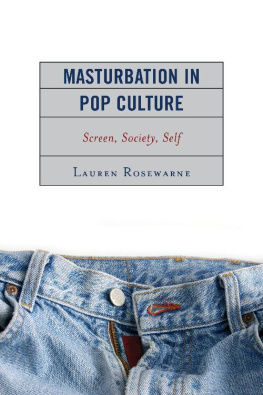
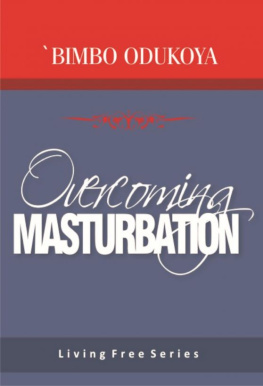
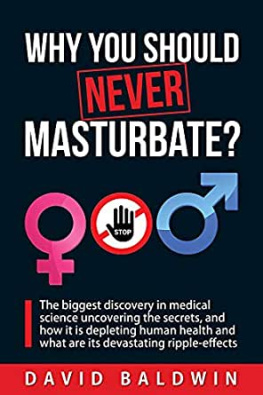


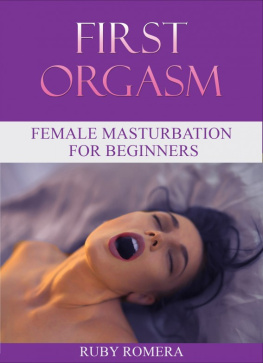


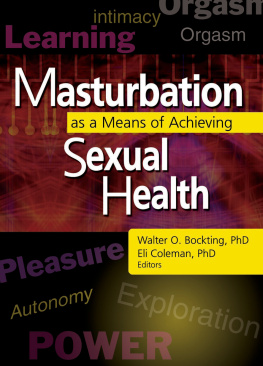

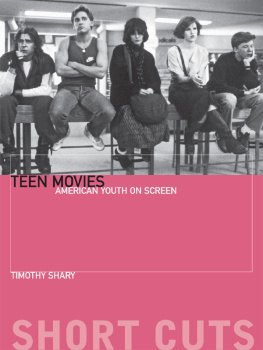
 TM The paper used in this publication meets the minimum requirements of American National Standard for Information Sciences Permanence of Paper for Printed Library Materials, ANSI/NISO Z39.48-1992.
TM The paper used in this publication meets the minimum requirements of American National Standard for Information Sciences Permanence of Paper for Printed Library Materials, ANSI/NISO Z39.48-1992.